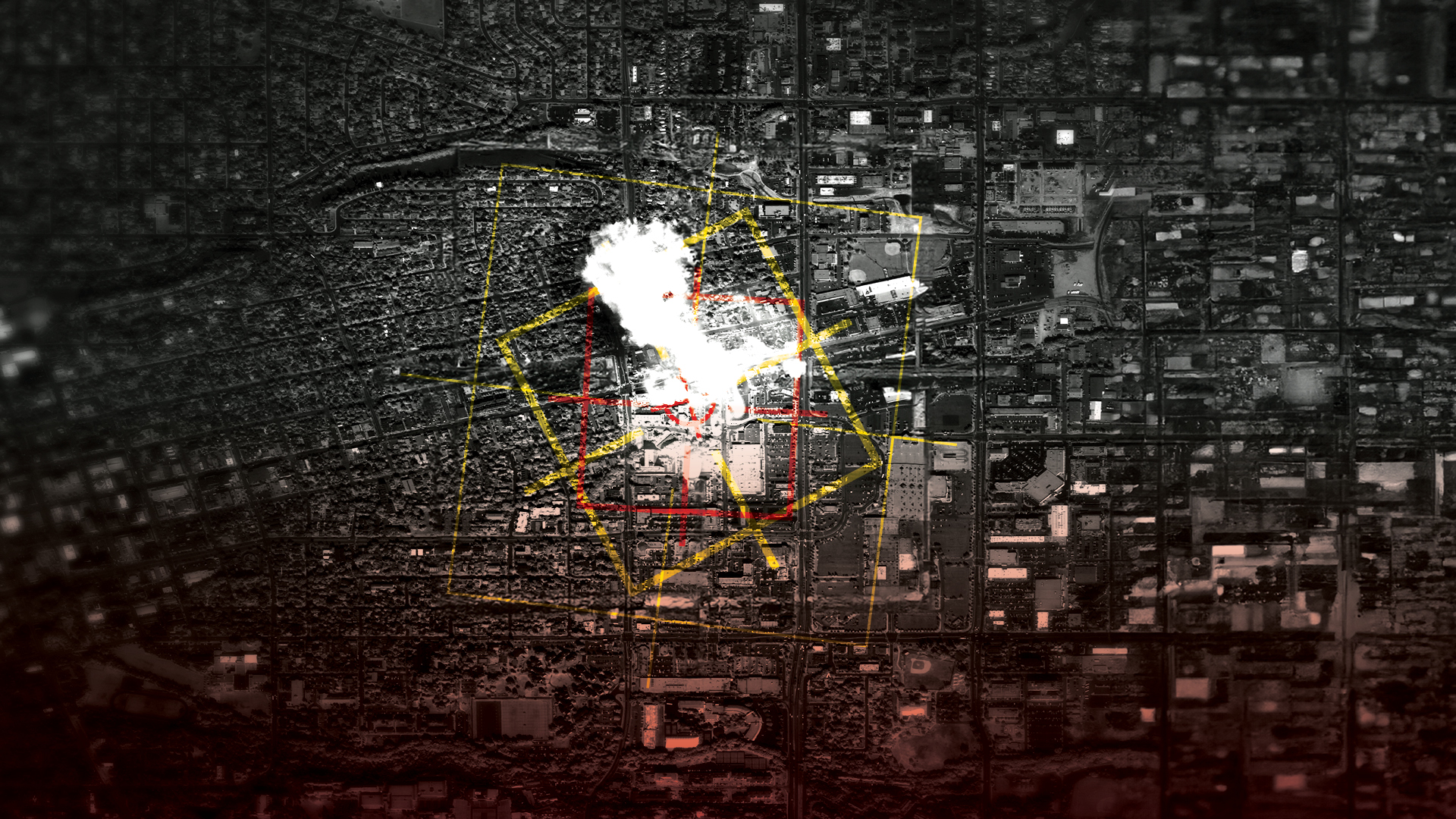It takes its name from Shanghai and has been used from Idlib to Kharkiv, with the aim of multiplying the victims of military strikes. What is the “double tap” tactic, who is using it, and who does it target? Why could it be considered illegal under International Law? Dr. Manisha Ganguly, visual forensics lead at The Guardian and an expert in war crimes investigation with the use of open-source intelligence (OSINT), answers these questions and more for iMEdD.
On June 21, 2024, the Israeli army allegedly bombed a camp for displaced Palestinians in Rafah, in the southern Gaza Strip. According to local authorities, 25 people were killed and 50 others were injured in the attack. Eyewitnesses told the Associated Press that the first strike was followed by a second and that many people who came to the scene for help were killed in the second explosion. These testimonies are indicative of a “double tap”, a practice considered illegal under International Law.
“The reports are extremely concerning and definitely warrant a further investigation.” commented Dr. Manisha Ganguly to iMEdD on the incident, explaining that much more evidence is needed before talking about a “double tap” hit. But what is the “double tap” tactic, which has been used by Russian forces in Syria and Ukraine, among other places, and why is it considered illegal?
Investigating war crimes using OSINT: A guide for journalists

Dr. Manisha Ganguly discussed at the iMEdD International Journalism Forum the techniques journalists can employ to investigate potential war crimes using information readily accessible to the public.
“The goal is to multiply the casualties”
In the 1930s, two British policemen in Shanghai developed a shooting technique in which the first pull of the trigger was followed almost immediately by a second. Their goal was to increase the accuracy and deadliness of the strike. They called the technique “double tap” and it is reportedly used by military and police forces around the world to this day. Little did the two policemen know that decades later, the same name would be given to another, far more deadly war tactic.
On July 22, 2019, in Idlib, northwestern Syria, the Russian air force allegedly bombed the same place –a market– twice, about half an hour apart. The attack killed 39 people and injured many more. “Syria was the testing ground for most of the techniques we see Russia using today in Ukraine” says Dr. Ganguly, pointing to “double tap” attacks by Russian planes in Ukraine as well. But it is not only Russia. There are also reports that U.S. forces allegedly used double tap tactics in Pakistan in 2012.
Dr. Ganguly was part of the award-winning BBC team that brought the Idlib market bombing to the forefront. “Essentially, the way it works (i.e., a “double tap” hit) is a targeted hit on a specific spot and then a second hit 30 minutes to an hour later.” But why is this tactic used? According to the OSINT war crimes investigator, the goal is to multiply the casualties and have a chilling effect on first responders. “There is no apparent need for a second strike especially in a location like a civilian market. Unless, of course, it specifically targets first responders” she points out.
“As soon as a strike happens, doctors, first responders and ambulances usually show up on the scene to try to help people. And in many cases, there are journalists there as well.” She explains that “double tap” attacks target these very groups of first responders.
The legal framework
International Humanitarian Law is the legal framework for armed conflict. It gives special protection to medical personnel during war, while journalists and other first responders are protected as civilians. “This means that if there is a deliberate targeted attack in the same spot to hit doctors and journalists, then it could potentially be a war crime” explains Dr. Ganguly.
The regular use of “double tap” hits also has a psychological effect on professionals and civilians in a war zone. Essentially, they have to consider that they may be risking their own lives when they go to help or cover an attack. “These people have to do the calculation and say, yes, I can go in and save this person’s life, but I may die in the process” the Guardian reporter says, adding that this risk assessment has a very serious psychological impact on doctors, nurses, journalists and citizens.
Returning to the attack on Rafa, Dr. Ganguly says that the question of intentionality is key. “Did the Israeli army intend to specifically hit doctors and civilians, or was it just a military target they were trying to hit that had moved?” she asks. There are reports that the Israeli army had allegedly used double tap attacks in Gaza, in 2014.
Today, however, the above question may be difficult to answer with certainty. “The problem with reporting on Gaza is that Israel and Egypt have blocked all foreign journalists, while Palestinian journalists are dying in their homes and on assignment in record numbers. In addition, there is a massive blockade of telecommunications, which means that the verifications and checks that we would be able to do in any other war zone are simply impossible in this situation” says Dr. Ganguly.
“It is therefore a lot trickier to hold Israel accountable for any war crimes it may or may not have committed in this case.”
